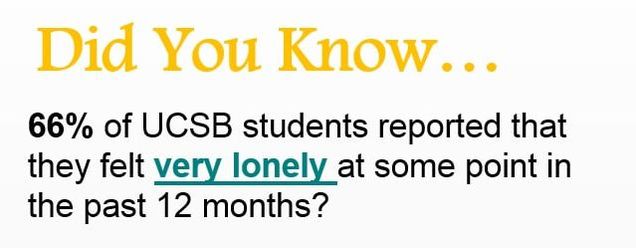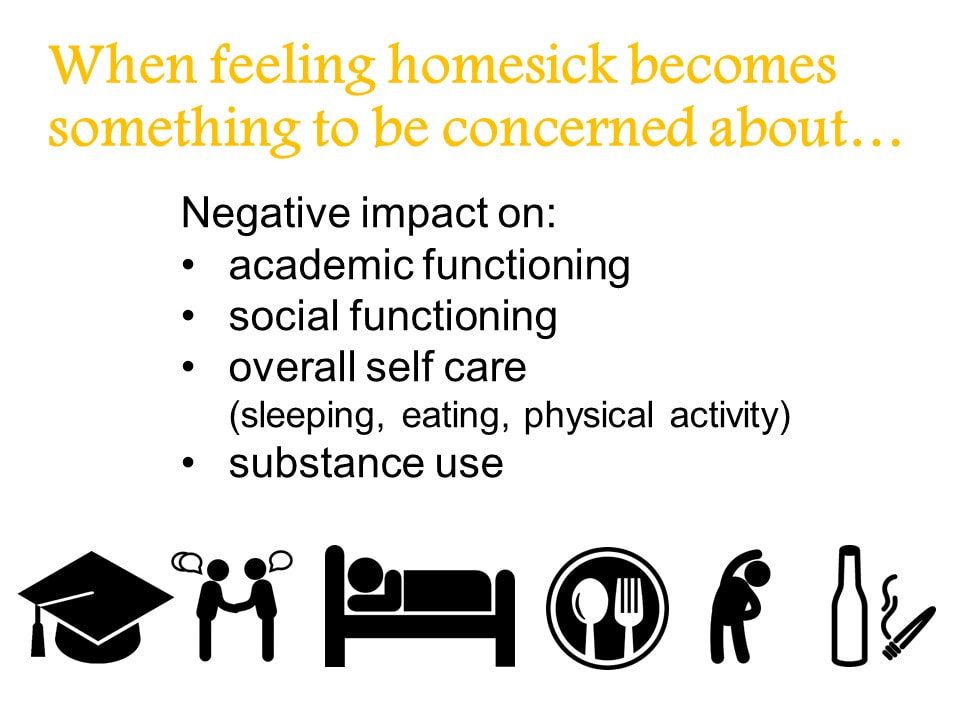Homesickness &
|
|
Students are often told that college is going to be the best time of your life. This may very well be true. But it is also true that making the transition to college can be tough, as it takes a lot of work and time for this place to feel familiar and comfortable.
Just think about it---If you are like most students this is the first time you are living on your own away from your family, friends, or your community close by. You’ve moved to a new place, are trying to make new friends, tackle new and challenging academic tasks, manage your daily routine….the list of “new” things goes on and on. |
With all of these new things happening, you will likely miss all kinds of things about home---not just the people, such as family and friends, and pets, but you might simply crave the familiarity of home---your room, your favorite foods, places you like to hang out. It’s normal to feel sad, a sense of loss, and homesick.
So, how can you take care of yourself in this transition, connect to important others at home, while building your home away from home here at UCSB? Check out the slideshow below to learn some tips about how to battle homesickness and start enjoying your life here at UCSB.
So, how can you take care of yourself in this transition, connect to important others at home, while building your home away from home here at UCSB? Check out the slideshow below to learn some tips about how to battle homesickness and start enjoying your life here at UCSB.
|
Feeling homesick becomes something to be concerned about when your sadness or longing to be somewhere else negatively impacts one or more of the following aspects of everyday life:
If this is happening for you, considering talking with the Mental Health peers or make an appointment with a CAPS counselor. |
Proudly powered by Weebly



